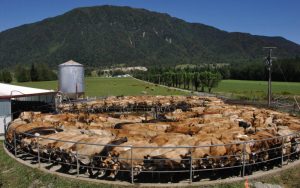
Kiwibank chief executive Steve Jurkovich said the largest marker of change in the banking sector was a shift in confidence from both lenders and consumers.
The boom in house prices over the past few years alongside the closed border created a lot of consumer spending in the domestic economy during tough times, Jurkovich said.
But as the border reopened, things were about to take a turn as money and talent fled overseas, he said.
“Almost every industry in the country is transitioning to a different way of doing things. But the skills to make those transitions are really scarce. With current immigration settings, there is no possibility we will have enough people to meet the demand,” Jurkovich said.
A focus on upskilling domestic talent was necessary, but not fast enough to make an impact when labour was needed now, he said.
“We are running the risk of being a net exporter of talent. As European and Australian markets open up and are prepared to pay more, we will be exporting talent and importing inflation because everything will cost more.”

While labour was the main factor domestically, war and political tensions in Europe and Asia provided a much more complex problem for the global economy, he said.
“The European uncertainty and escalating political tensions in Asia are the biggest stormcloud I see.”
New Zealand business should be wary of being overly reliant on China as a source of export revenue, he said.
“It is always a problem for so much of your revenue to be dependent on one customer, regardless if you are a big or small business. China has grown so large as a customer that many New Zealand businesses are subject to how they feel.
“It is all very fashionable to talk about pivoting, but no business can pivot from revenue disappearing completely, and many can’t survive a change of 50%. And that wouldn’t be unusual for businesses exporting into those markets.”
Fonterra chief executive Miles Hurrell said with geopolitical tensions high, the dairy co-operative was focused on maintaining diversity in its markets.
“We keep our heads down, and don’t get involved in conversations between countries. But we keep mindful of what may play out” Hurrell said.
One third of Fonterra’s export product is sold to China, but Hurrell dismissed the idea that the business was overly reliant on China, saying it was “important, but not everything”.
Supply chains remained a key issue for Fonterra, he said.

“We have a perishable product that if we don’t do something with very quickly it can go off. So delays in shipment or transport have an impact on our business.”
Hurrell said one of the key sticking points in shipping and processing at Fonterra was a lack of skilled labour.
But a changing global attitude towards agricultural products presented an opportunity for New Zealand agricultural exporters over the next few years, he said.
“Consumers are taking more interest in what they consume, and the story behind. New Zealand food and dairy ticks all those boxes. We are seeing strong demand coming from affluent markets where customers are willing to pay for those positive attributes in their foodstuffs.”

Hurrell said the New Zealand export economy was strong enough to weather the storm, despite rising domestic and international inflation.
“Inflation is high by historic standards, but we can weather it. Businesses will need to be prudent in their approach, and watch their spending to make sure they focus on the things that will turn the dial for both their organisations and New Zealand as a whole. We can get through this.”
Xero business growth director Charlie Nicholls said recruitment and retention of staff was the primary issue for the technology sector, and as the border reopened the issue was about to get worse.
“The border reopening is a double-edged sword for us. On one hand it is a great opportunity to bring in much-needed talent from overseas, but on the other hand we have a backlog of three years worth of Kiwis wanting to explore opportunities offshore,” Nicholls said.
The estimate from the Government that between 50,000 and 125,000 people could leave the country in the next year was a worry for the tech sector, she said.
“To combat this we are really focused on staff retention and keeping mental health at the forefront of our business. Part of our mahi as an organisation is how to support people through this crazy time.”

But there was an opportunity now for the local technology sector, as the world was looked for new ways to do business in the digital world, she said.
“People are looking for digital products that provide flexibility in working, and streamline tasks. There is a huge appetite for it globally. The rate of digital transformation we are seeing in business is high, we see the next few years as an opportunity to double down on our offering.”
Contact Energy chief financial officer Dorian Devers said supply chain issues were the biggest concern faced by the energy industry over the next few years.
As the energy sector made a generational shift to renewable energy, the timeliness and cost of projects depended a great deal on global supply chains, he said.
“Whether you are building a wind farm, a geothermal, or a solar array, you need to import a lot of experience and expertise. If you can’t get access to those, or the cost significantly rises, that will impact the returns for your projects, and whether or not you will be able to complete them,” Devers said.
He pointed to the huge disruption caused by China’s ongoing elimination Covid strategy and subsequent lockdown of the Shanghai port as an example of how global supply could be impacted by one country.

Despite inflation, supply chain issues, and troubles in the domestic and global economy, now was still the best time to build renewable energy infrastructure, he said.
But increased costs of energy infrastructure may lead to an increase in energy prices down the line, especially if inflation became embedded, he said.
The silver lining to the higher prices of energy globally was that it may provide a financial incentive for people and businesses to switch to renewable energy.
“Overall this is a great opportunity for decarbonisation. The more the cost of non-renewable energy goes up, the more people will switch to renewables.
“As companies like Contact continue to build renewable energy infrastructure, and the market for renewables grows, it may have the unintended consequence of fast tracking our climate change ambitions,” Devers said.

























